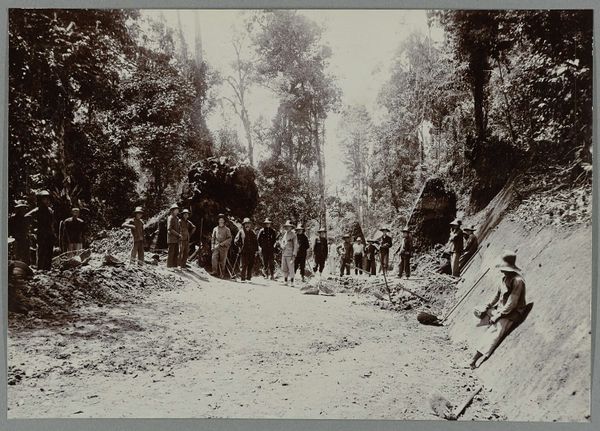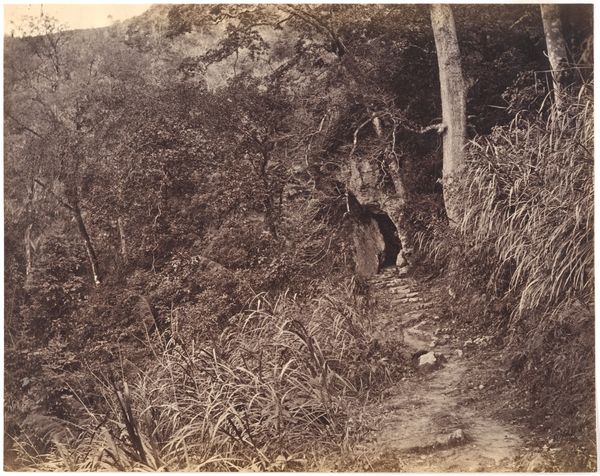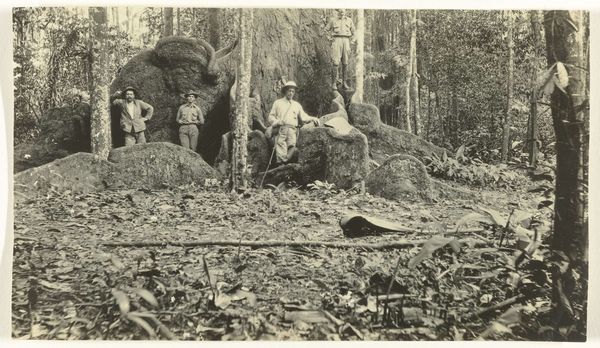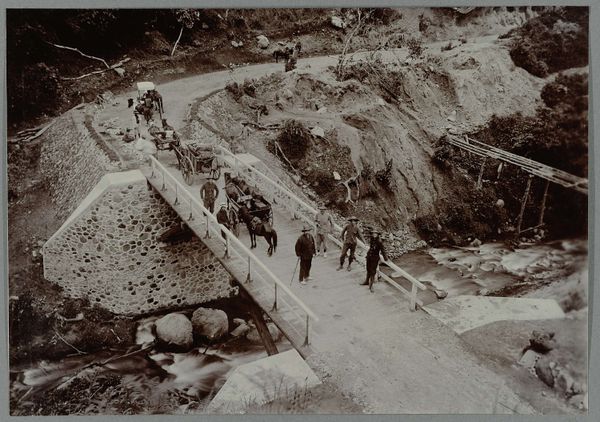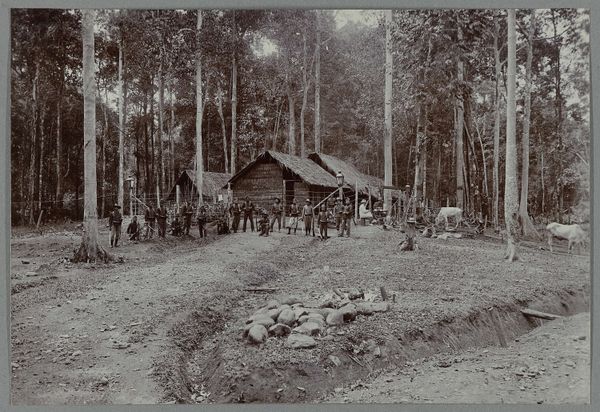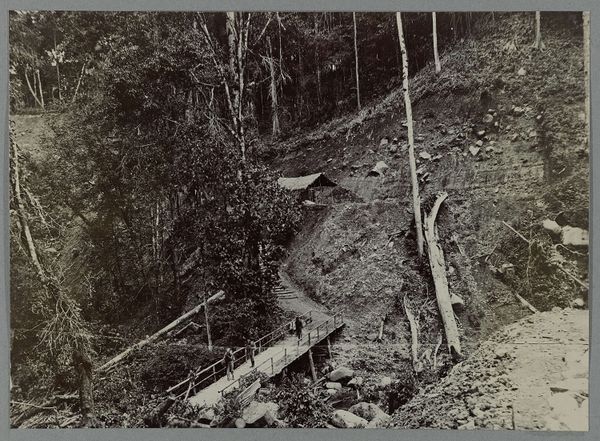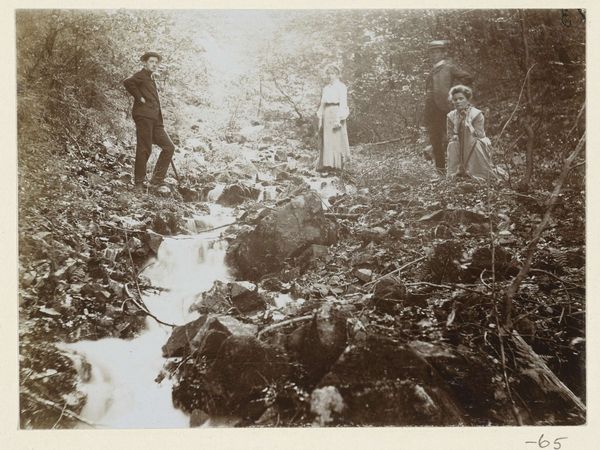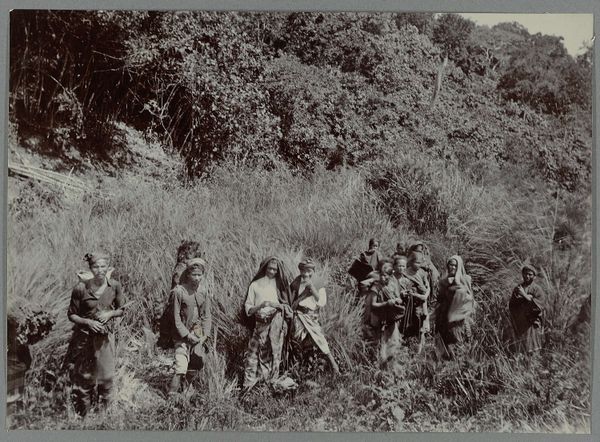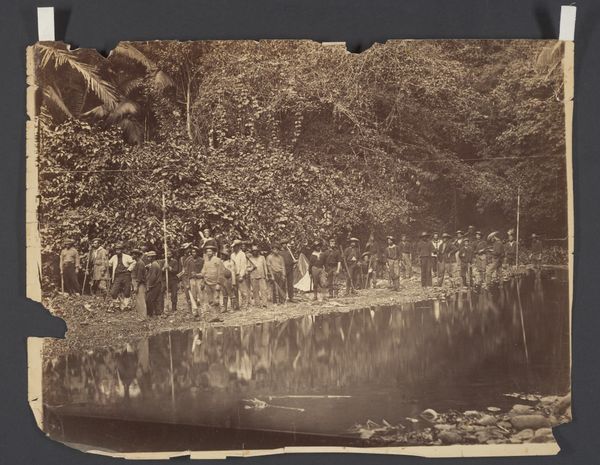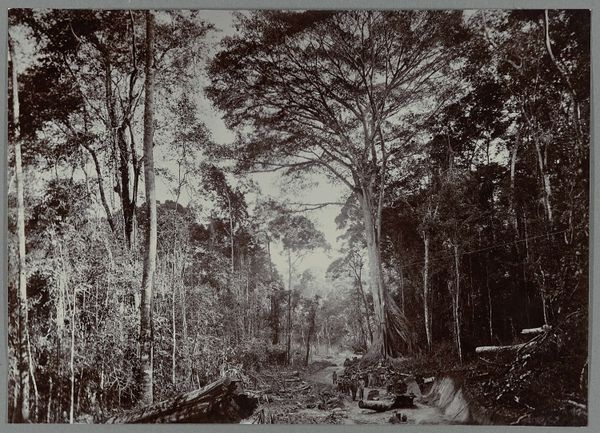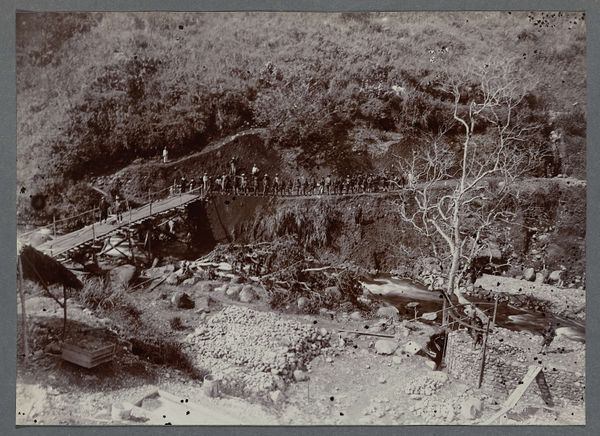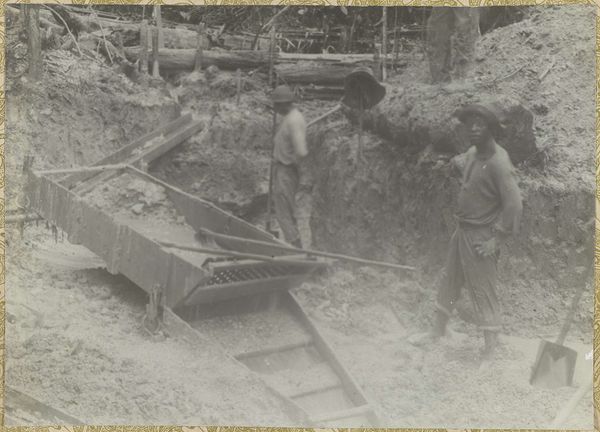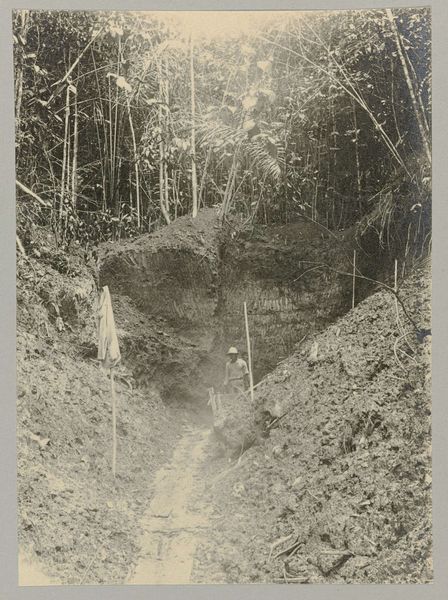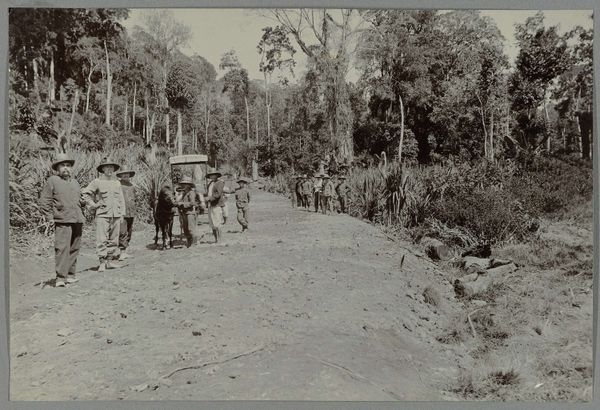
photography
#
landscape
#
archive photography
#
street-photography
#
photography
#
19th century
#
realism
Dimensions: height 138 mm, width 200 mm
Copyright: Rijks Museum: Open Domain
Editor: So, this photograph, "Nieuwjaarsochtend 1912 bij de Boer ni Poepandji," is from around 1912. It depicts a group of people in what looks like a recently deforested area, maybe for agriculture, given its location. It’s pretty stark. What stands out to you most when you look at this image? Curator: I see a visual document deeply embedded within a complex historical context of colonialism and its lasting impacts. The very act of photographing this scene normalizes a power dynamic, doesn’t it? A group, likely local workers or inhabitants displaced and observed, by a "Boer," or farmer in this setting probably of Dutch origin. How might we consider the gaze of the photographer in perpetuating a narrative of ownership and control over both the land and its people? Editor: That's a powerful perspective I hadn’t considered. I was mainly focused on the literal scene, the visual story of early 20th-century rural life, I was looking at them more as land workers who might have had economic challenges. Are you suggesting that every time we see archival photographs like these, we should be critically examining that dynamic? Curator: Precisely! Especially when the narrative presents a seemingly objective, or even romanticized view of a historical event. It forces us to question whose stories are being told and from what angle, also whose stories are omitted. It is key to acknowledge these power dynamics because ignoring this context can unintentionally contribute to colonial nostalgia, or blind spots. Does that connection to broader social structures reshape how you initially perceived this photograph? Editor: Definitely. It reframes the photo less as a neutral landscape and more as an active assertion of control. I initially just considered it rural photography but now I see this piece with fresh eyes: it gives us a lens to delve deeper into coloniality’s complex impacts. Thank you! Curator: My pleasure! Considering context, power, and perspective in art is the key to unlocking its greater meanings.
Comments
No comments
Be the first to comment and join the conversation on the ultimate creative platform.
